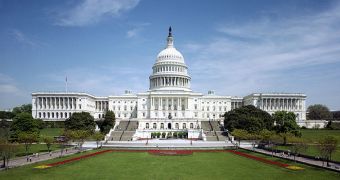The fact that NASA decided to allot $830 million to support the development of private spacecraft for fiscal year 2013, a $400 million increase from 2012 levels, was the main reason of discord between lawmakers and officials from the space agency during two recent congressional hearings.
Senators Kay Bailey Hutchison (R-Texas), a ranking member of the Committee on Commerce, Science, and Transportation, and Bill Nelson (D-Fla.) criticized NASA for its decision to allot such a large part of its $17.7 billion budget to these expenses.
More specifically, the representatives expressed their concerns that NASA is favoring the development of spacecraft meant to reach low-Earth orbit, and resupply the International Space Station, over the need to develop new spacecraft and rockets for exploring space beyond Earth.
The two congressional hearings took place on March 7, in a tense atmosphere. NASA Administrator Charles Bolden was asked why the private sector got such a large boost in funds, whereas the agency's own programs were stripped of their funds.
Primarily, the representatives were referring to the Space Launch System (SLS) rocket and the Orion Multi-Purpose Crew Vehicle (MPCV) capsule, which should be tested in 2017 and 2013, respectively. The first manned flight on the new system is scheduled for 2021.
Under the FY2013 budget proposal, funds allotted to the MPCV and SLS programs. The combined budget cut between these two projects is $326 million. Bolden defended his agency's decision by saying that these funding levels are sufficient to ensure that the development process goes as planned.
“I am committed to commercial being a part of our future, but not at the expense of our vital NASA employee sector and the building of the next vehicle that's going to take us beyond where we are. We can't fudge on the future in that way,” Hutchison told the NASA chief.
Bolden replied by saying that 2013, 2017 and 2021 remain solid dates even under the new budget. The second hearing he attended was held in front of the House Committee on Science, Space and Technology, Space reports.
“I don’t doubt your sincerity in shared goals, but what I'm very concerned about is the implementation that is reflected in the numbers of the budget that the president released,” Hutchison added.
Bolden said that supporting the private space industry will undoubtedly be worth it in the long run, when NASA becomes able to put American astronauts on the ISS using American spacecraft. At this point, the agency relies on the Russians for access to the space station.
Addressing the issue of NASA's own projects, the Administrator said “I am much more confident about SLS and MPCV, and that may be the reason that it appears that I'm not passionate about it. I'm incredibly passionate.”
He added that NASA requested $800+ million for the private sector in 2012, but that Congress only decided to allot half of that amount. As a direct result, the implementation of private cargo flights to the ISS slipped to 2017 at the earliest. This gap cannot be allowed to increase further, Bolden told senators.
Other representatives criticized NASA for its decision to cut 20 percent of funds from its robotic planetary exploration programs, specifically those aimed at Mars. These projects will get $300 million less than in 2012, under the FY2013 proposal.
“Speaking now about planetary sciences as well as Mars, I'm puzzled that NASA would choose to cut one of its most productive and successful science programs in this era of tough choices,” committee chairman Ralph Hall (R-Texas) commented at the hearing.
“Typically, good behavior is rewarded. But in this instance, it appears that NASA successes at Mars, Saturn and Mercury have garnered the opposite reaction,” he added.
Bolden agreed to the critic, but said that the low NASA budget forced the agency to make some very difficult decisions. However, the official added, the FY2013 proposal supports some fairly ambitious space exploration goals.

 14 DAY TRIAL //
14 DAY TRIAL //